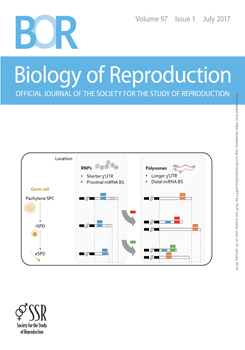In a recent genome-wide association study, 40 Fleckvieh bulls with exceptionally poor fertility were found to be homozygous for a nonsense mutation in the transmembrane protein 95 (TMEM95) encoding gene. Ejaculates from these individuals exhibited normal sperm concentration, morphology, viability, and motility. However, only 1.7% of inseminations resulted in pregnancies. The aim of this study was to examine the effect of this mutation in TMEM95 on bovine sperm function in vitro. Sperm from homozygous (mt/mt) males had lower in vitro fertility than sperm from wild-type (wt/wt) or heterozygous (wt/mt) bulls (P < 0.01). In addition, early embryo division was affected in the mt/mt group (P < 0.01). This translated into a lower (P < 0.01) blastocyst rate at day 8. Fluorescent staining revealed that TMEM95 is lost after the acrosome reaction. This led us to hypothesize that TMEM95 might be involved in events that lead to sperm-oocyte interaction. After fertilization, a lower number (P < 0.01) of sperm from mt/mt bulls bound to the zona pellucida (ZP). Sperm from mt/mt bulls were also less able to penetrate oocytes with no ZP (P< 0.01). However, when sperm from these animals were injected into mouse oocytes, they could decondense as successfully as sperm from wt/wt bulls. No differences between genotypes were observed in the ability of sperm to retain motility in an ex vivo oviduct, or in the percentage of sperm exhibiting markers for capacitation and acrosomal reaction. These results suggest that fertilization failure in mt/mt bulls is due to the inability of their sperm to interact with the oocyte vestments.
Summary Sentence
Bulls homozygous for a nonsense mutation in TMEM95 exhibit extremely poor fertility in vivo and in vitro. This is due to the inability of sperm from these animals to interact with the vestments of the oocyte.





